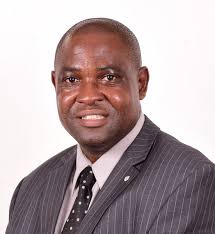The Nuclear Power and Energy Agency (Nupea) has clarified that the proposed nuclear plant will not be built in Kombani, Kwale County, dispelling rumors following recent protests by residents and civil society groups. The protests were sparked by a visit from Dutch experts, which led to fears that a nuclear facility was planned for the area.
Nupea CEO Justus Wabuyabo explained that the foreign experts were assisting the National Environment Management Authority (Nema) in assessing the viability of potential sites, which had been identified by Nupea for consideration. Speaking from his Mombasa office, Wabuyabo clarified, “The experts were visiting sites we had recommended for the proposed nuclear power plant so that when they write their advisory to Nema, they can provide their own perspective on the suitability of the sites.”
Nupea, working with SGS consultants, had conducted a social and environmental assessment and submitted a report to Nema. To further validate the findings, Nema enlisted the help of Dutch experts due to Kenya’s limited experience with nuclear energy. According to Wabuyabo, Kilifi and Kwale counties had been recommended for consideration as potential locations for the plant, though no final decision has been made.
Wabuyabo stressed that Nupea is still in the preliminary phase of site identification and has not finalized the location for the nuclear power plant. If Kilifi is determined to be the most suitable site after further assessments, a detailed environmental impact assessment will be conducted to ensure the project poses no threat to the environment or the local population.
Nupea is also exploring the use of Small Modular Reactors (SMRs), a newer technology that operates like traditional nuclear plants but is smaller, more efficient, and presents fewer risks. “These SMRs require less maintenance and operational costs, similar to having a personal generator instead of a large power plant,” Wabuyabo noted.
Environmental activists, led by Phyllis Omido, remain vocal against the proposed plant, particularly in Uyombo, Kilifi North constituency. Omido, the executive director of the Centre for Justice Governance and Environmental Action, voiced concerns about the potential environmental impact on the Unesco biosphere area in Uyombo. She led a protest march and presented a petition to Kilifi Governor Gideon Mung’aro, emphasizing their opposition to any plans to build the nuclear plant in the region.
On Tuesday, Wabuyabo said protests from NGOs had delayed the process of detailed site characterisation, which will determine the suitability of an area to host the proposed nuclear power plant.
“We are still conducting public participation fora to listen to the opinions of the people and to explain to them deeply what this nuclear energy is all about,” the CEO said.
He said nuclear energy is still relatively new in Africa and needs time for the people at the grassroots to understand, which is why public participation is a process and not an event.
He likened the advent of nuclear energy in Africa to the arrival of airplanes.
“When air transport technology was first introduced, people were skeptical about staying in the air for a prolonged period. But when they later realised it was the fastest and safest mode of transport, everyone embraced it,” the CEO said.
“It is the same with the nuclear power plant. Citizens must be taken through the pros and cons of nuclear energy. Even though there are dangers of this kind of energy, these dangers can be mitigated.”
Wabuyabo dismissed arguments by environmental activists that developed nations are moving away from nuclear energy, saying they are misleading people.
“They must get the correct information.As we speak, developed nations like the US, China, France and England are all establishing new nuclear power plants,” Wabuyabo said.
“The only place that wanted to or closed their nuclear power plant is Germany. And even they are now reconsidering that decision following the war in Ukraine, which prevents them from getting the energy they were getting from Russia.”
He said nuclear energy will help the world address the climate change challenge because nuclear energy does not emit carbon.
“It is a technology that has been accepted by the developed nations,” he said.
The CEO said the government cannot allow a project that would be harmful to its people.
He said the people are the assets of the country because they are the human capital needed for development to take place.
“Thus, any project that is undertaken must conform to the set laws in the country which protect both the people and the environment,” Wabuyabo said.
“We cannot do anything against the law. We will ensure that this project is safe for our Kenyan people and environment.”
He said politicians and NGOs may mislead people based on emotions.
He said their expressions are protected by the constitution because there is freedom of speech.
“But when they speak, they should be patriotic and think about how to uplift the lives of the common people. Let us no spread propaganda to make it difficult for our country to develop,” Wabuyabo said.



